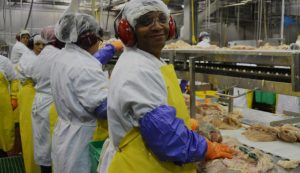Harnessing the Power of HOCl in Foodservice: A Scientific Perspective on its Efficacy against Pathogens
Introduction:
Hypochlorous Acid (HOCl) has emerged as a formidable weapon in the arsenal of foodservice establishments striving to maintain impeccable standards of hygiene and safety. This scientific discourse delves into the compelling reasons why food businesses should place their trust in HOCl for its unparalleled effectiveness in eradicating a spectrum of pathogens, including notorious culprits like Salmonella, E. coli, Listeria, and norovirus.
1. Antimicrobial Potency of HOCl:
HOCl stands out as a potent antimicrobial agent renowned for its ability to swiftly and decisively neutralize a diverse array of pathogens. The mechanism of action of HOCl involves the disruption of microbial cell membranes and vital components, leading to rapid microbial death. Studies have demonstrated the superior efficacy of HOCl in comparison to traditional disinfectants, highlighting its exceptional capacity to combat bacterial, viral, and fungal contaminants prevalent in foodservice environments.
2. Targeting Pathogens of Concern:
Salmonella, E. coli, Listeria, and norovirus represent prominent threats to food safety and public health, underscoring the critical need for robust disinfection measures in foodservice settings. HOCl has been proven effective in targeting and eliminating these pathogens, effectively reducing the risk of foodborne illnesses and outbreaks associated with contaminated food products. By incorporating HOCl into their sanitation protocols, food businesses can mitigate the transmission of these pathogens, safeguarding the health and well-being of consumers.
3. Rapid Inactivation of Pathogens:
HOCl exhibits rapid antimicrobial activity, swiftly incapacitating pathogens upon contact and preventing their proliferation on food contact surfaces, equipment, and utensils. The fast-acting nature of HOCl ensures prompt disinfection in high-risk areas of foodservice establishments, minimizing the potential for cross-contamination and microbial spread. This rapid inactivation of pathogens is crucial for maintaining a hygienic environment and preventing the transmission of infectious agents through food handling and preparation processes.
4. Resilience Against Emerging Pathogens:
In an era marked by the emergence of novel pathogens and evolving microbial threats, the versatility and efficacy of HOCl make it a valuable asset for food businesses seeking to stay ahead of infectious risks. HOCl’s broad-spectrum antimicrobial activity extends to a wide range of pathogens, enabling foodservice establishments to adapt to changing sanitation needs and combat emerging microbial challenges effectively. By leveraging the resilience of HOCl against diverse pathogens, food businesses can enhance their preparedness and response capabilities to safeguard public health and uphold food safety standards.
Conclusion:
In conclusion, the utilization of HOCl in foodservice settings is driven by its unparalleled effectiveness in combating bacteria, viruses, and other pathogens, including Salmonella, E. coli, Listeria, and norovirus. By harnessing the formidable antimicrobial potency of HOCl, food businesses can fortify their defenses against microbial threats, protect consumer health, and uphold the highest standards of hygiene and safety in their operations. Embracing HOCl as a frontline defense against pathogens in food service environments underscores the commitment of food businesses to excellence, innovation, and public health protection.
#food #foodservices #resturants #hotels#foodbusiness #resturants #foodfactory #foodprocessing #meatindustry #fishindustry #foodsafety #hocl #publichealth

Now you can clean & kill 99.9% of germs without toxic chemicals. BS - approved. Sign up to get 10% off.